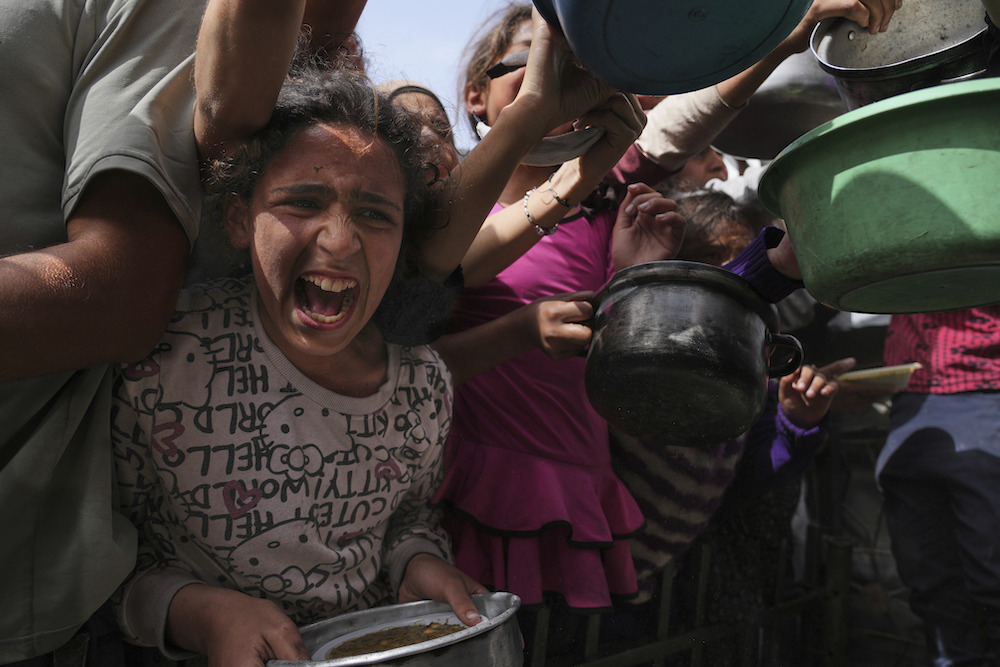NEW YORK CITY: The UN secretary-general evoked several provisions of the Fourth Geneva Convention on Tuesday to remind Israeli authorities of an occupying power’s “unequivocal” obligations under international law.
The obligations Antonio Guterres highlighted included ensuring the welfare of the civilian population, the supply of food and medicine, and the maintenance of public health services.
“None of that is happening today,” he said. “No humanitarian supplies can enter Gaza. At the crossing points, food, medicine and shelter supplies are piling up and vital equipment is stuck.”
Speaking in New York to reporters, the UN chief described Gaza’s current path as a dead end that is “totally intolerable” in the eyes of international law and history.
He also warned that the situation in the West Bank could spiral into a similar crisis unless urgent steps are taken to protect civilians, end dehumanization and restore peace.
Guterres called for an immediate, unconditional ceasefire in Gaza and full humanitarian access to be restored. It has been more than a month since aid entered the territory, he added, exacerbating an already devastating humanitarian crisis.
“More than an entire month has passed without a drop of aid into Gaza,” he said. “No food. No fuel. No medicine. No commercial supplies. As aid has dried up, the floodgates of horror have reopened.”

A Palestinian girl struggles as she and others try to get donated food at a distribution center in Beit Lahiya in the northern Gaza Strip. (AP)
Guterres condemned proposals by Israeli authorities to introduce “authorization mechanisms” for the delivery of aid that risk further controlling and “callously limiting aid, down to the last calorie and grain of flour.”
He said the UN “will not participate in any arrangement that does not fully respect the humanitarian principles: humanity, impartiality, independence and neutrality.”
He warned that “the situation in Gaza has become a killing field” and civilians are trapped in an “endless death loop” as a result of the blockade on food, medicine, fuel and other essential supplies.
“Ceasefires work,” Guterres said. “During that ceasefire (between January and March this year), humanitarian organizations successfully delivered critical aid, including food and medical supplies, to Gaza. Guns fell silent, obstacles were removed, looting ended and we were able to deliver lifesaving supplies to virtually every part of the Gaza Strip.
“That all ended with the shattering of the ceasefire. Hope sank for Palestinian families in Gaza and families of hostages in Israel.”
Guterres expressed deep concern about the continuing detention of hostages by Hamas and other militant groups in Gaza. He met the families of the hostages on Monday and reiterated his call for their immediate release.
“With crossing points into Gaza shut and aid blockaded, security is in shambles and our capacity to deliver has been strangled,” he continued.
He reiterated the declaration made by UN humanitarian organizations on Monday, who said in a joint statement that “assertions that there is now enough food to feed all Palestinians in Gaza are far from the reality on the ground, and commodities are running extremely low.”
Guterres said: “We must stick to our core principles. It is time to end the dehumanization, protect civilians, release the hostages, ensure lifesaving aid and renew the ceasefire.
“The world may be running out of words to describe the situation in Gaza but we will never run away from the truth.”



























